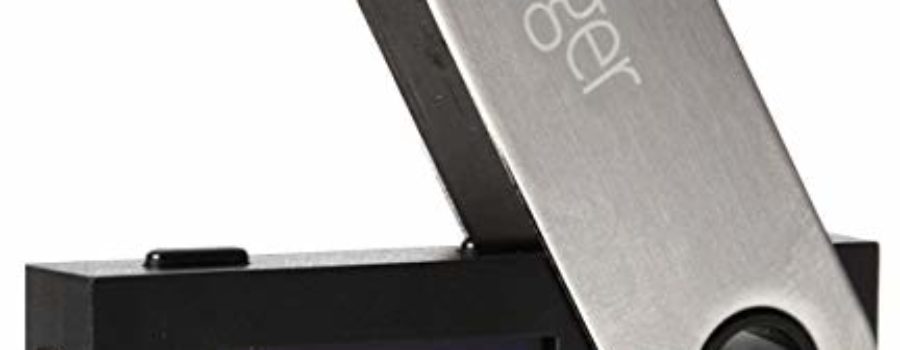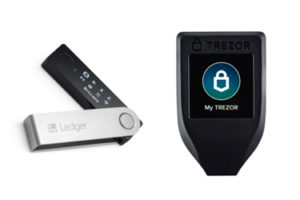If you’re just getting started with Bitcoin, you’ll know that it is an entirely decentralized digital currency underpinned by blockchain technology. While people commonly use terms such as ‘send’ or ‘receive’ when talking about Bitcoin, it’s important to understand that bitcoins stay on the blockchain and never actually go anywhere. With the bitcoin value rising over time, you’ll need to control ownership of your bitcoin by acquiring a bitcoin wallet, and that’s what we’ll be discussing today.
What is a bitcoin wallet?
A bitcoin wallet is like the Bitcoin version of a bank account. You need a wallet to receive Bitcoins, send them to other people and to store them. However, a better way to think of a wallet is like a keychain. When you send or receive a bitcoin, you aren’t physically sending or receiving anything. In fact, your wallet is altering the code of the bitcoin in a way that proves you are acquiring or relinquishing ownership of the bitcoin. Bitcoin wallets accomplish this via two unique addresses called ‘keys.’
Wallet keys explained
When you create a wallet, you are assigned two unique addresses that look like a random combination of upper and lower case letters and numbers. These are:
A public address:
Every bitcoin wallet has a public address that can be seen by anyone. If you send someone your bitcoin’s wallet public address, they can send you bitcoin.
A private address:
Every bitcoin wallet also has a secret piece of data called a private key. This is an essential part of the security of Bitcoin as this private key is used to sign all transactions and prove that Bitcoins have come from a particular wallet. Your private key should remain confidential. If someone knows your private key, they can take control of your wallet.
Why is my wallet’s public address shared?
Your wallet’s public address can be seen by anyone. When you send or receive Bitcoin, this address is shared publicly and helps ensure that the bitcoin network remains secure. Every bitcoin transaction is grouped together into blocks of data, and then every record of Bitcoin’s blockchain is simultaneously updated. This record helps to create trust and security in the system by creating an agreement, or consensus, over which addresses sent or received bitcoin. Your private key, on the other hand, is not shared but creates mathematical proof of your transactions.
Types of bitcoin wallets explained
There are five main types of bitcoin wallets, depending on your needs and preferences. These are as follows:
- Software wallet
There are many free bitcoin wallets available for all major operating systems and devices including Windows, Mac, Linux and more.
- Mobile wallets
Many wallets are available that can be installed as apps on your mobile device for everyday use. You’ll find plenty of options whether you use iOS, Android, a Windows Phone or simply want to access your wallet through a web browser on your device.
- Paper wallets
Paper wallets simply mean that you physically print out your public and private keys onto a piece of paper. Instead of this information being stored online or on a computer, you need to keep this paper safe to stay in control of your wallet.
- Hardware wallets
Hardware wallets are small physical devices that you buy to protect your wallet’s private keys. The most popular wallet manufacturers include Trezor, Ledger, KeepKey, and more. To store bitcoins on them, you need to download special software that lets you create your own wallet on the device. The device itself will protect your private key.
- Online wallets
An online, or ‘web,’ wallet is stored by a third party such as a website or a Bitcoin exchange. When you register on a cryptocurrency exchange such as Coinbase.com, they will automatically create a bitcoin wallet for you. You can view the wallet’s public address, but they will store the wallet’s private key on their servers. To access this wallet, you simply use a traditional username and password to sign into your account.
How to choose a bitcoin wallet
Choosing a wallet is simple and takes a few minutes. Bitcoin.org has many wallets to choose from depending on your operating system, device, and preferences. As bitcoin works differently from standard money, each type of wallet has different pros and cons. Here are the ins and outs of each type of wallet.
Online wallets
Online wallets are the easiest type of wallets to set up and start using, so many Bitcoin investors and traders start off with this type of wallet. Here are the main pros and cons of online wallets.
Pros
- Online wallets are the easiest type of bitcoin wallet to start using. The provider, such as Coinbase, will give you a traditional username and password, so there’s no need to write down or store your wallet’s private key.
- Online wallets take the stress away from having to install a software or mobile wallet and protect your private key. An online wallet provider should be able to help you recover your account if you lose or forget your password.
- Many online wallet providers such as Coinbase offer a wide range of security features such as 2-Factor Authentication, email alerts, and other precautions. Coinbase actually stores the majority of its customers’ deposits offline and offers insurance on all U.S. Dollar and bitcoin deposits.
Cons
- As online wallets are hosted by a third party, you must have faith that the company will not suffer a major hack. This could result in the loss of your bitcoin. However, most bitcoin exchanges have insurance policies in place to cover this risk.
- Many online wallet providers have suffered from major security breaches in the past. The value of their assets makes them prime targets for hackers. Therefore, it isn’t advised to store significant amounts of bitcoin in an online wallet.
Software and mobile wallets
Software and mobile wallets have higher levels of security than online wallets. Here are the main pros and cons of these types of wallets.
Pros
- You are responsible for the security of your software or mobile wallet, which can give you peace of mind.
- Using a software wallet gives you the opportunity to use a high-security hardware wallet such as a Trezor or Ledger device. As all confidential data, including the PIN, are entered exclusively through a touch screen, this gives your wallet a high level of security against malicious hacks and attacks.
Cons
- Just like a real wallet with cash, it’s a good idea to just keep small amounts of bitcoin on a software or mobile wallet and use a safer option (such as a hardware wallet) for securing large quantities of bitcoin.
- This type of wallet must be stored on your computer, a hard drive, a mobile device or another physical device. The lost or destruction of this device, or your password, can see you lose your bitcoins unless you make backups.
- Your security is your own responsibility. You must backup your wallet to protect against human error, theft, or computer failure. A backup will help you recover your wallet even if your computer or mobile are stolen, lost or damaged.
- It’s recommended to make encrypted online backups in case your computer comes into contact with malicious software. The safest option is to store your details in a password-protected encrypted vault.
- You often need to make multiple, regular backups on different types of media and store these backups in separate locations. Your options include USB flash drives, CDs and paper. This can be time-consuming and complex.
- To guard against keylogging hardware or software, it’s advisable to encrypt your wallet, your smartphone or computer to protect your passwords.
- Bitcoin has limited password recovery options, so if you forget your password, your bitcoin may be irrecoverable.
Hardware wallets
Hardware wallets offer extremely high security with relatively little ease of use.
Pros
- Hardware wallets never reveal your private keys to anyone, even if you are using a compromised device, computer or connection.
- You can recover your bitcoin wallet if the device is lost or stolen.
- Hardware wallets are increasingly convenient to use. For example, the latest Ledger Nano X is Bluetooth enabled, making it simple to sign bitcoin transactions via a mobile device.
Cons
- Hardware wallets aren’t free but are a worthwhile investment.
Conclusion
Ultimately, the type of wallet you choose will depend on your technical experience and the value of your bitcoins. If you are simply experimenting with a small amount of bitcoin, then an online wallet with a trusted provider such as Coinbase.com will be perfectly fine. If you are concerned about the security of a large amount of Bitcoin then a hardware wallet such as a Trezor Model T, a Ledger Nano X or a KeepKey is a wise investment.





Most Commented Posts